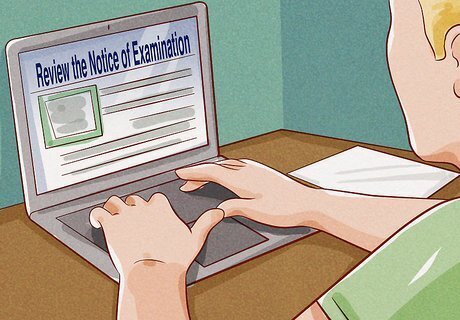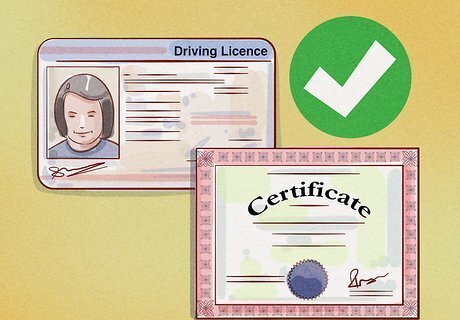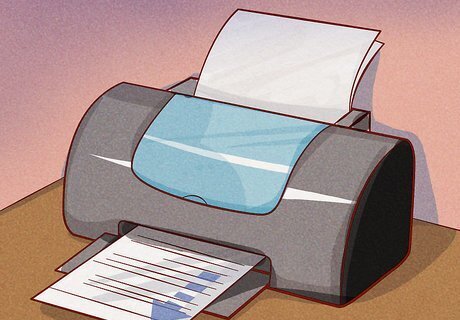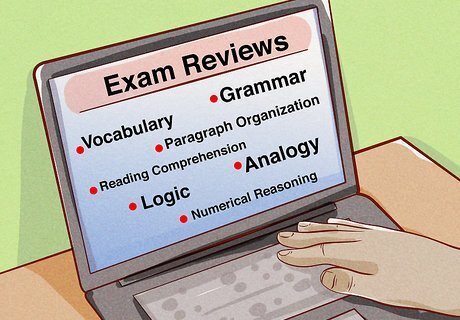
views
Searching for Civil Service Jobs

Check your government's website for exam announcements. Civil service examinations are administered through your city, state, and national government. You should regularly check these websites as some tests are available to take only once or twice a year. You should contact the specific government agency if you have any questions regarding which vacancies are posted online. If you are a first time applicant, you may have to create an account with the specific website before applying. Some websites may give you the option to sign up for job alerts. This way you will receive an automatic notification when new vacancies open up.

Read carefully through the exam description. There are different application requirements depending on the type of job for which you are applying. Be sure to read through the information in the announcement for details. There are generally three types of civil service announcements: Open Competitive: These exams rank applicants based on test score. The higher your exam score, the better your chances are of continuing through the application process. Continuous: These announcements are for jobs for which the state or county are continually hiring. Exams are administered on a periodic bases and are open to all applicants that meet the minimum requirements. Exam for Future Vacancies: This is an opportunity to take the exam without applying for a specific job. If you receive a passing score, you can then apply to vacancies as they open up. In some cases, those with higher test score may be referred for interviews.

Make sure you meet the minimum job requirements. For most civil service jobs, you need to be at least 18 years of age, and a legal resident of the city or state to apply. Some jobs may require that you become a resident at least six months before applying to take the examination. Education and experience requirements vary depending on the job. For example, some jobs require a degree in a specific field of study. If your degree falls outside of this discipline, you must provide a copy of your transcript showing that the majority of your credits were within the subject area specified in the job posting. Some jobs may require that you have a specific license or certification. You should make sure that all of your licenses are current and valid throughout the application process.

Review the Notice of Examination. Exam announcements usually include an official Notice of Examination (NOE). This will provide more specific details regarding job duties, test description, filing period, expected exam date(s) and other pertinent information. The Notice of Examination should also specify whether or not you are allowed to take the test online or in person.
Submitting Your Materials

Send any transcripts or other required documents. Some civil service examinations may require specific educational experience. You should contact your college or university well ahead of the deadline to make sure they send a copy on time. If you're worried about meeting the deadline, you should make your own copy to send. Similarly, you should include copies of your licenses and certifications, if necessary. You can usually find a scanner or copy machine at your local library. Reach out to the specific government agency to make sure they receive your materials.

Submit a written request if you need special accommodations. Governmental agencies are required to provide accommodations for those with disability. If you need such accommodations, you are required to send a written request, along with proof of disability. This request should indicate the specific accommodation requested, and any alternative which would be equally acceptable. Accommodations can include an accessible or alternate examination site, additional time to complete the examination, full written instructions in large print or braille, or special attention from the monitor.

Pay the application fee. In most cases, there is a processing fee required when you submit your application. You should find out whether you can send your payment electronically or if you need to mail a signed check or money order. You may be exempt from this fee if you are receiving: General Assistance: Remember to submit a copy of your benefits letter from your local welfare director with your application. Temporary Assistance for Needy Families: Make sure to submit a copy of your award letter which shows your case number. Supplemental Security Income: Include a copy of your latest annual award letter, or a copy of your medical recertification.

Turn in your application. It's important to keep the filing date in mind as you fill out the application. Test spots tend to fill quickly. So finishing your application in a timely manner will increase your chances of getting a testing spot. You are required to provide a valid ID and social security number along with your application. The Online Application System (OASys) can be accessed from any computer with a recommended internet browser. Mobile devices and tablets are generally unable to access the system. Follow the instructions in the Notice of Examination in order to access the application. Computer-based Testing & Applications Centers (CTACs) are physical locations where computer based examinations are administered for city or state jobs. The NOE should include a list of various centers in your area where you may take the test.

Print or save a copy of your application and supporting documents. It's important to keep your own records in case something goes awry. You should hear back within 12-14 weeks after you submit your application. If you still haven't been notified after this time, check back with your testing agency.
Acing the Test

Review the different methods of evaluation. These methods may vary depending on the type of civil service test for which you are applying. Here are some of the most common exams you might face. Oral and Essay Exams: These exams are designed to test your ability to synthesize information and provide answers to critical thinking questions. Performance and Job Simulation Exams: Some jobs may require that you take an exam in order to measure certain abilities that pertain directly to job, such as a typing test or a scenario-based management test. Computer Administered or Multiple Choice Exam: Certain jobs require that the applicant complete a test based on the job titles, requirements, skills, and related knowledge required to perform the job.These exams are developed, administered and scored by the state.

Brush up on your language and math skills. Polishing these skills can help prepare you for whichever exam you take. ACT and SAT study guides can be useful resources in this regard. Or you could even enroll in a class at your local university. This can often help lend a more tangible structure to your study routine.

Work through a study guide. There are a number of resources online that can help give you a better idea of what kind of questions will be on the exam. Many of these resources not only have practice problems, but also provide practical advice when it comes to the test day. Many people have passed the exam successfully after using this as a point of reference. Exam reviews typically cover vocabulary, grammar, paragraph organization, reading comprehension, analogy, logic, and numerical reasoning.




















Comments
0 comment